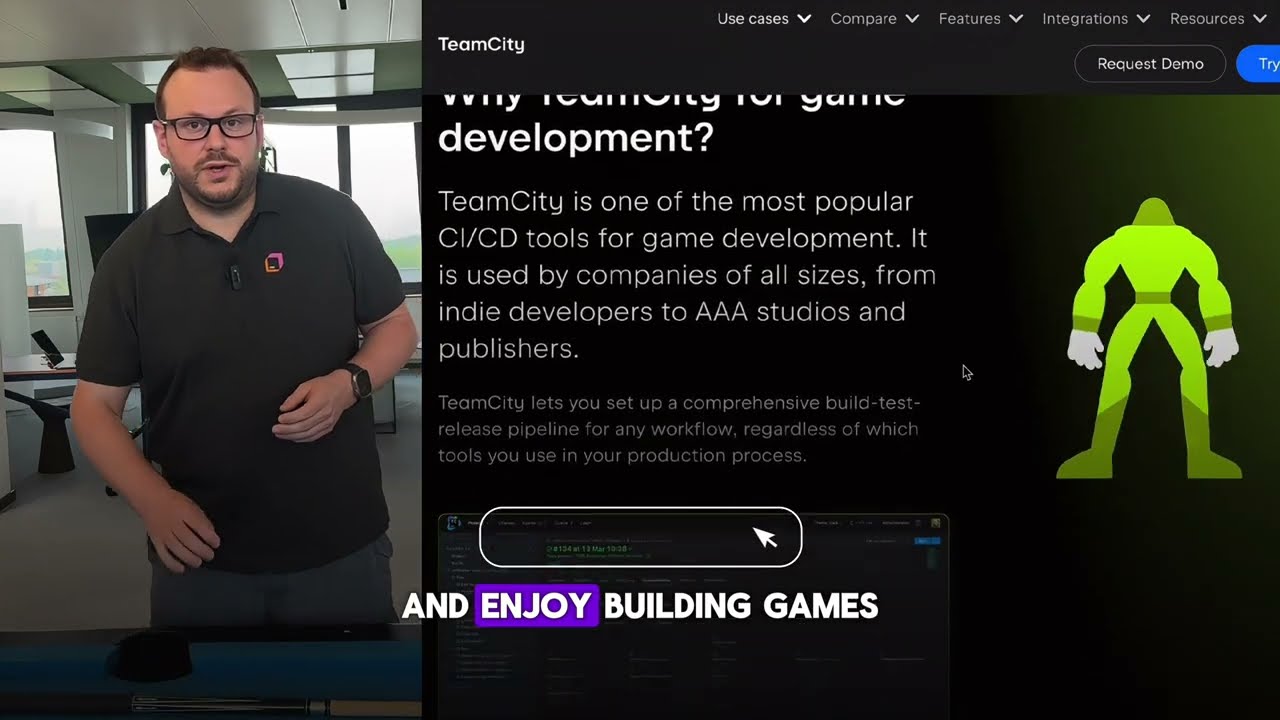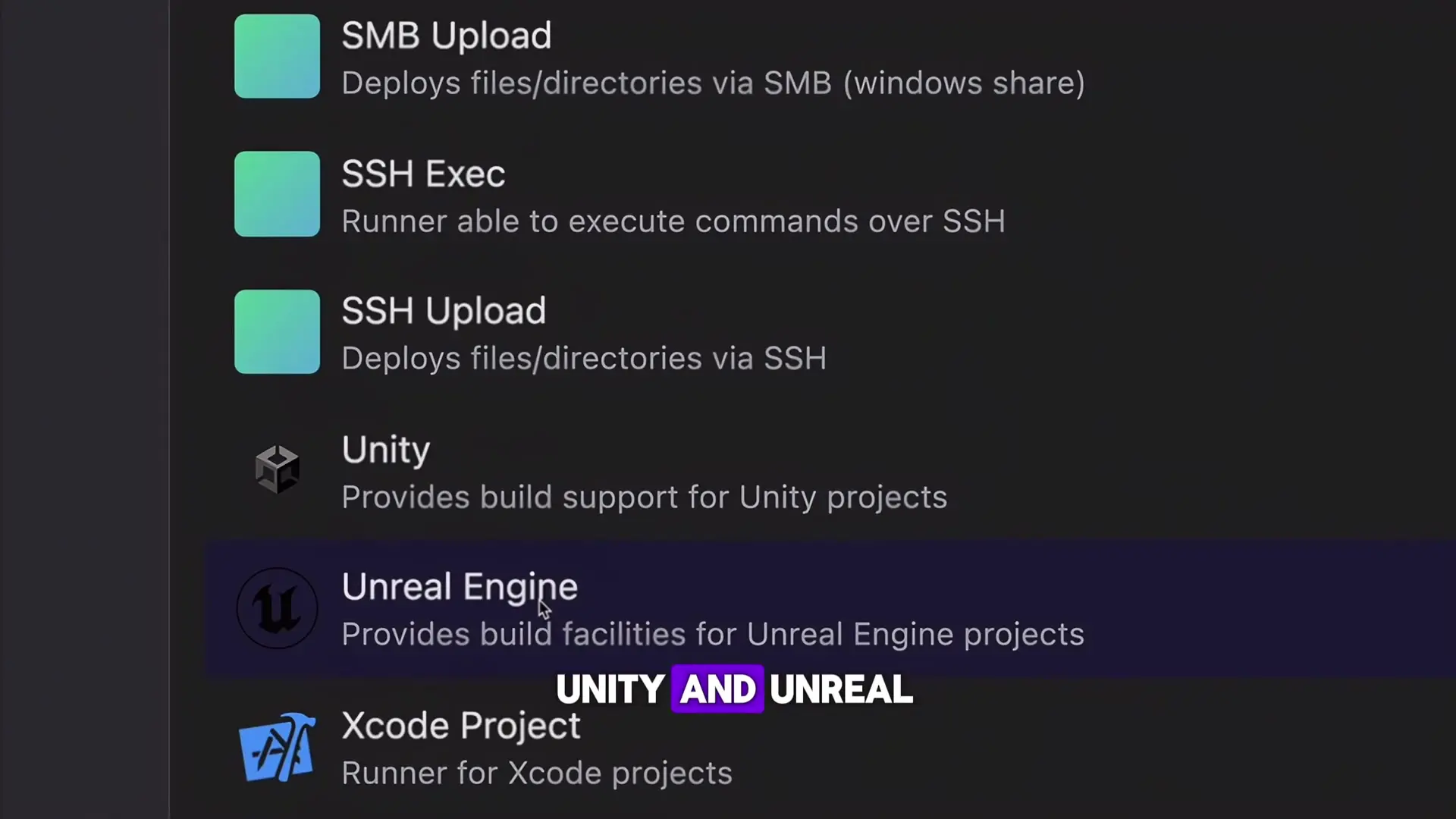
In the competitive landscape of game development, choosing the right continuous integration platform can significantly impact development efficiency and release cycles. While Jenkins has been a staple in many studios' DevOps toolchains, TeamCity is emerging as a preferred alternative for game developers seeking more specialized features and stability.
The Jenkins Challenge: Plugin Dependency and Maintenance
Jenkins has long been the go-to CI solution across various industries, including game development. Its open-source nature and extensive plugin ecosystem provide flexibility, but this comes with a significant trade-off. Many game studios find themselves "babysitting plugins" - constantly managing compatibility issues, updates, and configurations to maintain their build pipelines.
When comparing Jenkins vs TeamCity vs GitLab or evaluating Jenkins vs other CI tools, the maintenance overhead of Jenkins becomes apparent. While Jenkins offers customizability, TeamCity provides a more integrated experience with features specifically designed for game development workflows.
Three Key Advantages of TeamCity for Game Development
When examining the difference between TeamCity and Jenkins for game development, three critical advantages emerge that address common pain points in game studio pipelines:
- Native Perforce Support: TeamCity offers built-in integration with Perforce, the version control system preferred by many game studios for handling large binary assets and complex branching strategies.
- Built-in Steps for Unity and Unreal: TeamCity includes dedicated build runners for major game engines, eliminating the need for custom plugin configurations.
- Better Reusability of Dependencies: TeamCity's intelligent dependency management results in shorter build times - a crucial advantage when compiling large game codebases and assets.

Native Perforce Integration: A Game Development Essential
Perforce (P4) remains the version control system of choice for many game studios due to its superior handling of large binary files and robust locking mechanisms. While Jenkins requires additional plugins for Perforce integration, TeamCity offers native support out of the box.

This native integration means more reliable connections to your Perforce server, better handling of workspace mappings, and simplified setup for automated builds triggered by P4 changes. When evaluating TeamCity vs Jenkins vs GitHub Actions or Azure DevOps vs Jenkins vs TeamCity, this native Perforce support gives TeamCity a significant edge for game studios.
Purpose-Built for Game Engines
One of the most compelling reasons game studios choose TeamCity over Jenkins is its built-in support for major game engines. TeamCity includes dedicated build steps for Unity and Unreal Engine, eliminating the need to configure and maintain custom build scripts or plugins.
These purpose-built runners understand the specific requirements of game engine builds, including:
- Handling Unity license activation during builds
- Managing Unreal Engine's build tool parameters
- Properly packaging game builds for different platforms
- Executing automated tests within the engine environments
When comparing Jenkins vs TeamCity vs GitLab or Jenkins vs TeamCity vs CircleCI, this specialized game engine support significantly reduces setup time and maintenance overhead for game development teams.
Dependency Management for Faster Build Times
Build time optimization is critical in game development, where compiling code, processing assets, and packaging builds can take hours. TeamCity's intelligent dependency management system provides a significant advantage over Jenkins in this area.

TeamCity offers:
- Artifact dependency caching to avoid rebuilding unchanged components
- Snapshot dependencies that understand build chain relationships
- Intelligent build triggering that only rebuilds affected components
- Parallel execution of independent build steps
These features combine to deliver significantly shorter build times compared to Jenkins, especially for complex game projects with multiple dependencies and large asset libraries.
Beyond the Basics: Additional TeamCity Advantages
While examining the difference between TeamCity and Jenkins, several additional advantages become apparent for game development teams:
- Superior UI/UX: TeamCity offers a more intuitive interface for managing build configurations and viewing results
- Build Chains: Visual representation of build dependencies makes complex pipelines easier to understand
- Built-in Test Reporting: Better visualization of test results without additional plugins
- Powerful REST API: Easier integration with other tools in your development ecosystem
- Lower Maintenance: Fewer moving parts means less time spent on CI system maintenance
When comparing TeamCity vs Jenkins vs Bamboo or JetBrains TeamCity vs Jenkins, these quality-of-life improvements add up to a more reliable and developer-friendly CI experience.
Is TeamCity Right for Your Game Studio?
While Jenkins offers advantages in terms of being free and open-source with a vast plugin ecosystem, TeamCity provides a more integrated and specialized solution for game development. When evaluating Jenkins advantages and disadvantages against what is better than Jenkins for your specific needs, consider these factors:
- Team size and build volume (TeamCity licensing is based on build agents)
- Complexity of your game project and build requirements
- Available DevOps resources for CI/CD maintenance
- Integration needs with game engines and Perforce
- Budget considerations (Jenkins is free but may require more maintenance hours)
For many game studios, the specialized features and reduced maintenance overhead of TeamCity justify the licensing costs, especially when factoring in the developer time saved from troubleshooting plugin issues and configuring complex build pipelines.
Conclusion: Building Games Without the Duct Tape
While Jenkins has served many game studios well, TeamCity offers a more streamlined, purpose-built alternative that addresses the unique challenges of game development CI/CD. With native Perforce support, built-in game engine integration, and intelligent dependency management, TeamCity enables development teams to focus on creating games rather than maintaining build systems.
When comparing TeamCity vs Jenkins or evaluating Jenkins vs TeamCity vs GitLab for your game development pipeline, consider how much time your team currently spends "babysitting plugins" and whether a more integrated solution might improve your development workflow and build reliability.
For game studios looking to optimize their CI/CD pipeline, TeamCity represents an opportunity to build games without the metaphorical duct tape that often holds together complex Jenkins configurations.
Let's Watch!
TeamCity vs Jenkins: Why Game Studios Are Switching CI Tools
Ready to enhance your neural network?
Access our quantum knowledge cores and upgrade your programming abilities.
Initialize Training Sequence